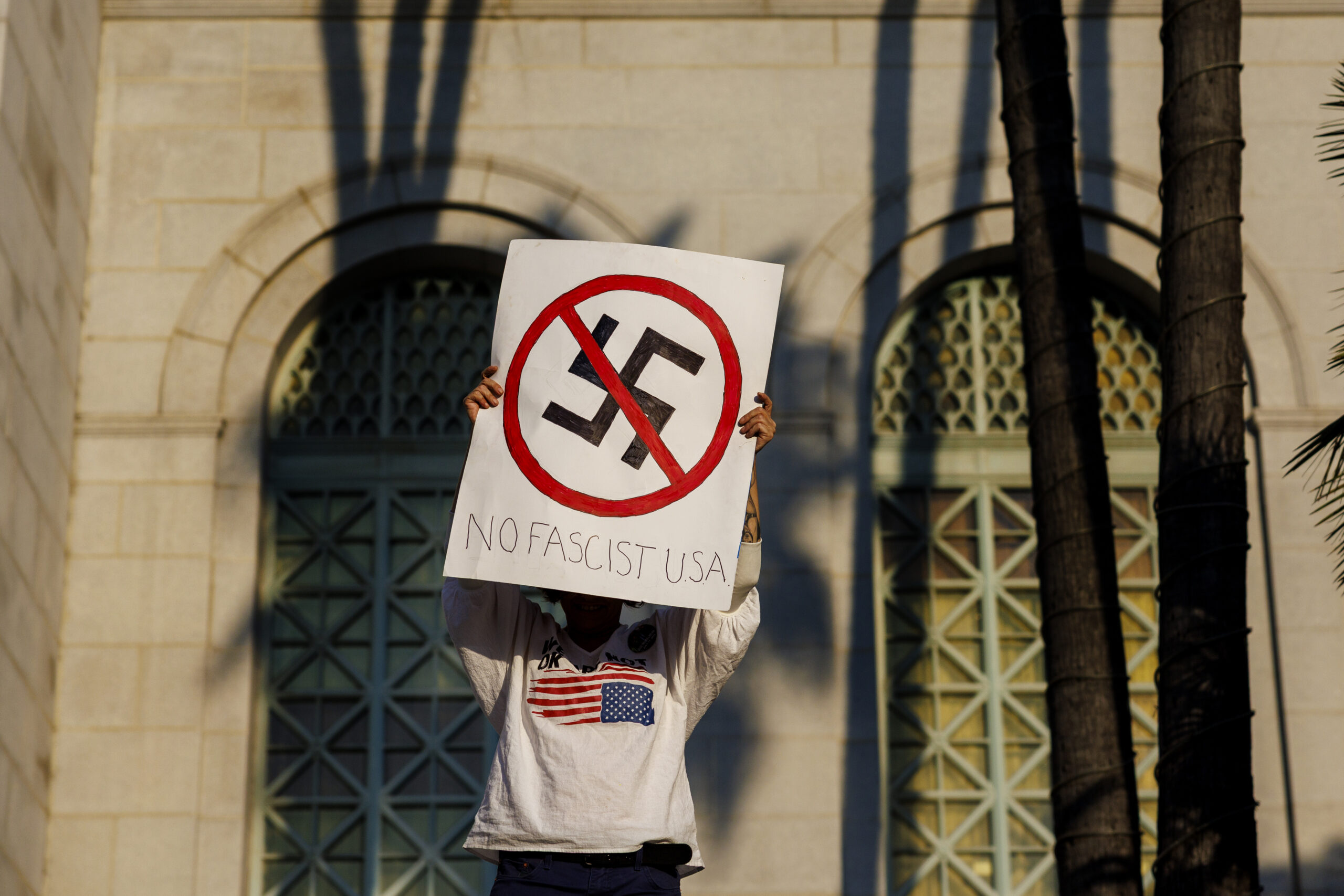Derby of the Ideologies
What is fascism, anyway?

When Marxists, classical or cultural, encounter something they really hate, they call it “fascist.” Most squawk it like Polly the parrot, with no understanding of its meaning.
But what is fascism? And how does it contrast with Marxism?
In fact, Marxism and fascism have much in common. Both are ideologies. An ideology is a Procrustean bed made up of the ideas of this or that philosopher, which society must be stretched or slashed off to fit.
For classical Marxists, the philosopher is Marx himself, read selectively; for cultural Marxists, Adorno, Marcuse, and the rest of the Frankfurt School; and for fascists, Nietzsche. To those who carried it out, the Holocaust was “beyond good and evil.”
Because reality seldom comports to what an ideology says must be so, all ideologies seek power (in Tolkien’s The Lord of the Rings, the Ring of Power is power itself). Ultimately, their power must be total, because only total power can compel people to pretend the ideology is correct when their own eyes tell them it is not. In pursuit of total power, fascism, in its German form of National Socialism, killed 15 million people. Marxism, as wielded by Lenin, Stalin, Mao, and Pol Pot, killed around 100 million people in the 20th century. In today’s America, the cultural Marxists have shown their totalitarian ambitions on college campuses they control; in their hands, places that require freedom of thought and expression have become small North Koreas. Thanks to President Trump’s courage in defying and assailing cultural Marxism, it is now in retreat here. Regrettably, it still has a death-grip on Canada, the UK, and some European countries.
With so much in common, why do Marxists and fascists hate each other? At root, fascism is or was—since it arose out of particular circumstances in Italy and Germany that are unlikely to be repeated—an attempt to abandon the whole Judeo-Christian component of Western culture and return to the values of pagan antiquity whereby power was reckoned the highest good. That power was to be exercised by the leader in acts of will, which were exalted in themselves regardless of what was willed. Fascism turned an instrumental virtue, will, into a substantive virtue.
In terms of its philosophical roots, Marxism goes in the opposite direction. It takes one Judeo-Christian virtue, concern and care for the less fortunate, and translates it into a single idea on which an entire society must be based. It calls that idea “equality” or “equity,” by which it means equality not of opportunity but of condition (except for a small elite that runs the scam; “some animals are more equal than others”). Since no one has yet succeeded in levelling up, everyone other than the elite lives in an equality of poverty. Successful people, those who have risen above the herd by pluck, luck, or hard work—kulaks, landlords, the hated bourgeoisie—are taken out and shot or stripped of their property and sent to brutal “re-education camps” to learn to mouth the lies the ideology demands. Cultural Marxists tear down the icons of Western culture and demand that whites, Asians, men, non-feminist women, Christians etc. spend their lives apologizing to the sainted “victim groups” that cultural Marxism worships.
In terms of their political bases, fascism appeals to the middle class because it promises order and broadly (and somewhat deceptively) represents traditional middle-class values. Classical Marxism’s base (at least in theory) was the oppressed majority of workers and peasants. But over time those workers and peasants have done what they wanted to do and risen into the middle class. Cultural Marxism attempts to get around this problem by appealing to a coalition of supposedly oppressed minorities. But those minorities, even when combined, are still a minority in most societies. That means cultural Marxism can only take power if it can brainwash whole generations, which is what it is attempting in most of our schools, universities, and through the entertainment industry. That plot is now transparent to a majority of Americans; Trump won in part because he was the only candidate who dared confront cultural Marxism.
Because they deny important aspects of reality, all ideologies contain the seeds of their own destruction. Classical Marxism cannot give people a decent standard of living. A planned economy does not work and people need material incentives to produce. The joke in the Soviet Union was, “They pretend to pay us and we pretend to work.” Cultural Marxism has turned into a self-satire with “trigger warnings,” “micro-aggressions” and the horror of using someone’s “wrong pronouns.” (My preferred pronoun is “Bismarck.”)
Subscribe Today
Get daily emails in your inbox
Fascism’s fatal failing was that acts of will by the leader that defied reality brought disaster. That includes Mussolini’s entry into the Second World War, Hitler’s declaration of war on the United States, and the Holocaust. The world’s reaction to the latter is one reason fascism is unlikely to rise again.
Russell Kirk wrote that conservatism is the negation of ideology. As a conservative, I want a society governed not by abstractions but by customs, habits, and traditions that reflect what many people have learned over time. But what if events force us to choose between Marxism and fascism, as Germans had to choose in the late 1920s and early ’30s? Marxism is loser-worship and fascism is winner-worship. Which is likely to work better, a society that worships losers or one that worships winners?
Let us pray we never have to make that choice.